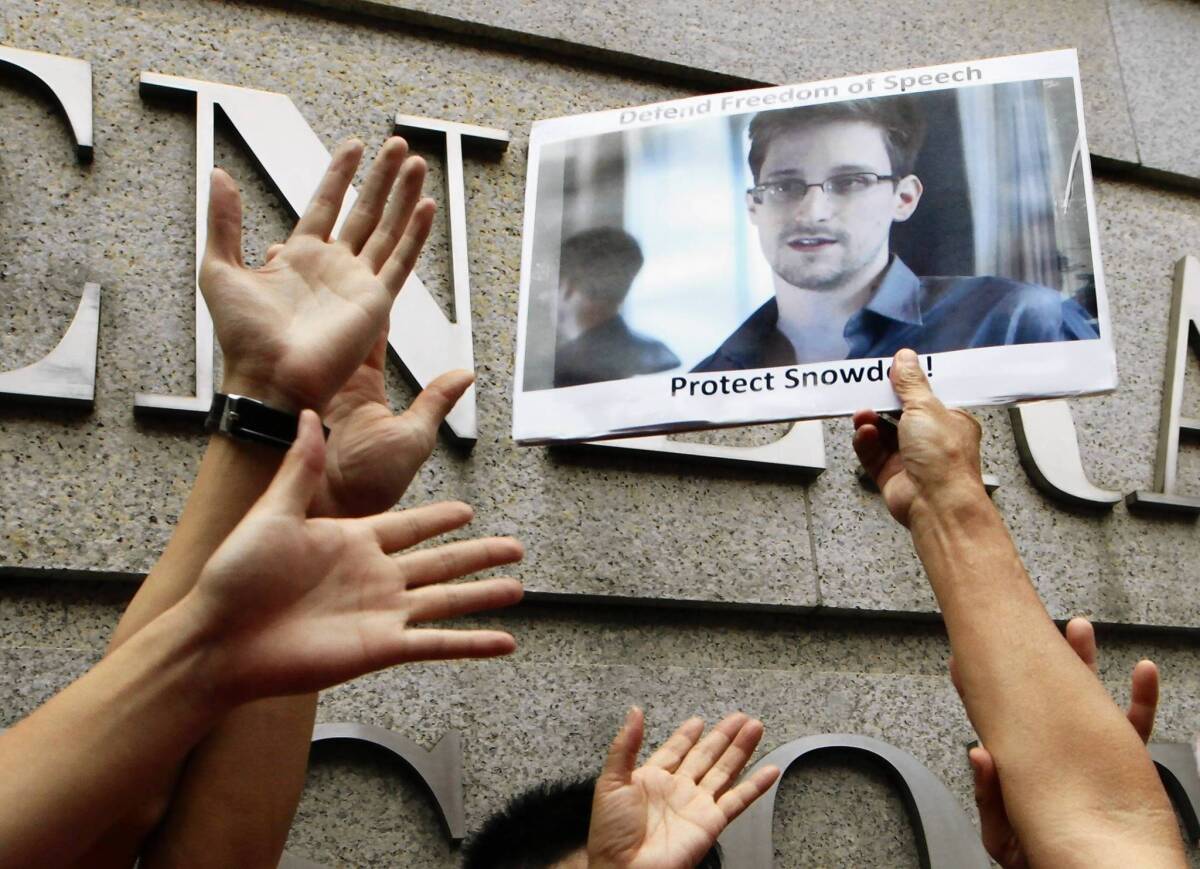NSA leaks: Privacy in the Facebook age

- Share via
Last Sunday, a few days after news broke that the National Security Agency was running a massive electronic surveillance program, The Times published a letter from Arcadia resident David Strauss implying that the Facebook generation had this coming. “[My wife and I] do use snail mail and the telephone, but we have no need to show everyone what we had for breakfast,” Strauss wrote. “Maybe a renewed sense of privacy among millennials would give the ‘Patriot Actors’ a lot less to do.”
A handful of other readers whose letters weren’t published expressed similar sentiments about Americans’ expectations of privacy in the digital age. Here is a selection of those letters.
Marla Burg of Ventura says some thoughts are best kept offline:
“Did anyone else crack a smile after reading the blogpost of Lindsay Mills, the left-behind girlfriend of leaker Edward Snowden? She wrote: ‘My world has opened and closed all at once. Leaving me lost at sea without a compass.’
“I don’t mean to judge the self-described ‘world-traveling, pole dancing super hero’s’ level of maturity or propensity toward self-dramatization, but this sure struck me as the kind of writing traditionally relegated to one’s personal journal.
“I find it ironic that the Facebook generation is so up in arms that government agencies might be keeping algorithmic tabs in the interest of national security. Life in a civil society is about compromise.”
San Clemente resident Alba Farfaglia says Snowden’s leak is a digital-age wakeup call:
“It seems ironic to me that after posting ourselves and our interests all over the Internet, we are suddenly concerned about privacy and the 4th Amendment.
“This surveillance comes right from the Patriot Act, enacted after the 9/11 attacks, which gives the government practically unlimited powers in the name of keeping the country safe.”
“There can be a compromise. If the government has just and probable cause to suspect that someone wants to harm Americans, then yes, it needs to look at that person’s phone calls, e-mails and other records. But for all Americans just going about their business living each day, working, raising a family and taking care of themselves and others?
“It takes work and brains to come up with an equitable compromise, but it’s easier just to say, ‘Everybody.’
“Snowden’s revelation has made us stop and realize just how extensive post-9/11 surveillance has become in the name of ‘national security.’”
Jeffrey C. Briggs of Hollywood recommends an unplugged way to communicate:
“The answer to the whole problem, and more, is U.S. mail.
“Even those not terribly upset about the prospects of the government reading or collecting data from their e-mails or listening to their phone calls would agree that reading their U.S. mail is going too far. It doesn’t happen. So anyone concerned about government eavesdropping simply can go back to the post office for their truly private communications. And it would help the U.S. Postal Service regain solvency.
ALSO:
Letters: Children and same-sex marriage
Letters: Recycling right-wing talking points
Letters: Building -- and feeding -- community
More to Read
A cure for the common opinion
Get thought-provoking perspectives with our weekly newsletter.
You may occasionally receive promotional content from the Los Angeles Times.






